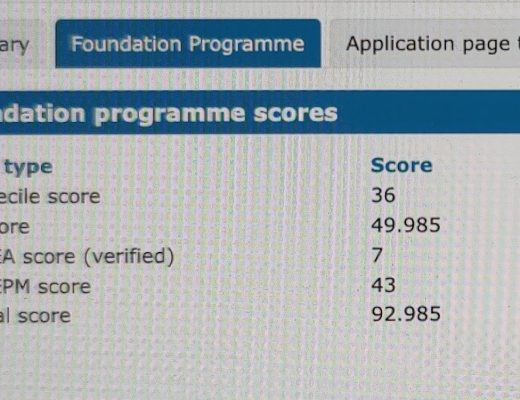Foundation SJT tips from a resitter, Part 1
I did fairly well in the SJT last year; ending up with a total score of 91.6, and landing myself my top-choice job in the hospitals I wanted.
Unfortunately for me I’m retaking the year due to OSCE difficulties, which includes everything that comes with it- including all logbook signups and, of course, the FPAS application system. So whilst digging out my SJT notes from last year, I realised that having gone through the whole experience (including it’s ups and downs!) I had some experience and advice that may prove useful to share.
As you probably know by now, it’s a bit of an odd exam, focusing not on knowledge but on appropriate reactions to scenarios, such as your senior Doctor being drunk (there were at least three questions on that last year, bizarrely) or handling a complaint from a patient. You answer each question by ranking five possible scenarios, from most to least appropriate. The tricky part comes when you realise you can’t justify your answers, or gain extra information, and have to go exactly with what’s in front of you!
So what’s the best way to learn for this new test?
It’s very tempting to try and learn the “correct” answers to a variety of questions, such as from working through the variety of SJT practice question books available. Personally, I didn’t rate any of these, as I found they each had their own biases. The Oxford Handbook version was clearly written by older Consultants with the idea of “don’t bother your seniors”- NOT the SJT ethos! Another book I found had questions on clinical scenarios- the test actually requires very little medical knowledge. We even found such bizarre options in question banks as “try to stab the patient with your pen”- unfortunately nothing in the exam was so clear-cut wrong or right!
I daresay the books/question banks will have improved this year (look out for anything on its second edition, I see on Amazon that the Oxford Handbook one is), but if you use them, use them with an open mind. Be willing to rethink answers that don’t seem right, and discuss with your peers. Remember that a slight change in the options could completely affect your answer in the exam.
(Also: order the books as soon as possible- they sell out fast, and last year one didn’t arrive for me until the week before the exam!)
My main strategy for revision was to try and get into the right “mind-set” of the test. The test isn’t about knowledge- it’s about thinking like a Doctor, and so I did my best to learn what the test was looking for, and familiarise myself with the principles I should be applying/would be tested on. To start with, you can do background reading about how the test was developed and what it is looking for. I went to www.isfp.org.uk for this, and specifically read through the SJT monograph which is a really good explanation of what the test is looking to measure, and how.
The UK Foundation Programme Website also provides a person specification for the SJT on their documents page.
Then I spent a lot of time reading the various GMC guidance such as Good Medical Practice (I went so far as to have a summary of this on my bedroom wall!) and Tomorrow’s Doctors. We should of course know these backwards by now, but they are very clear and thorough documents laying out everything expected of us. There are even interactive scenarios you can work through to break up the book-work: http://www.gmc-uk.org/static/media/Medical_Students/index.html and http://www.gmc-uk.org/gmpinaction/ which will help you practice all the guidance to aid recall.
Finally, I would definitely recommend going on a revision course. While my University tried to advise us on this exam, they aren’t familiar with it- but GP trainees are, having been doing SJT’s for years now. Emedica ran an intensive day course where they provided key background information, including the ethical principles, GMC guidance and day-to-day problems you may face as a junior doctor (and so on the test). They provided and confidently went through example questions; explaining the correct answers in a really sensible way that made sense. This was supplemented by a set of practice questions to go through online afterwards; which I found very useful, as I knew I could trust the examples!
The course also included a timed practice test that forced you to answer each question in a set amount of time- this is really important thing as the timing is close and indeed I know of some people whose mark dropped simply due to running out of time.
In summary:
- Learn the background knowledge;
- Get advice from the experts;
- Practise putting the guidance into practice;
- And use common sense… you’ll be fine!



No Comments